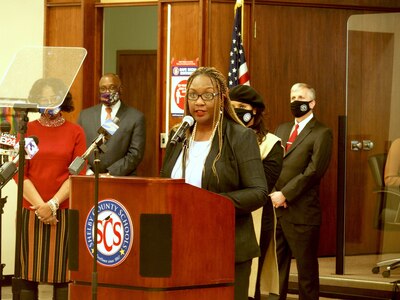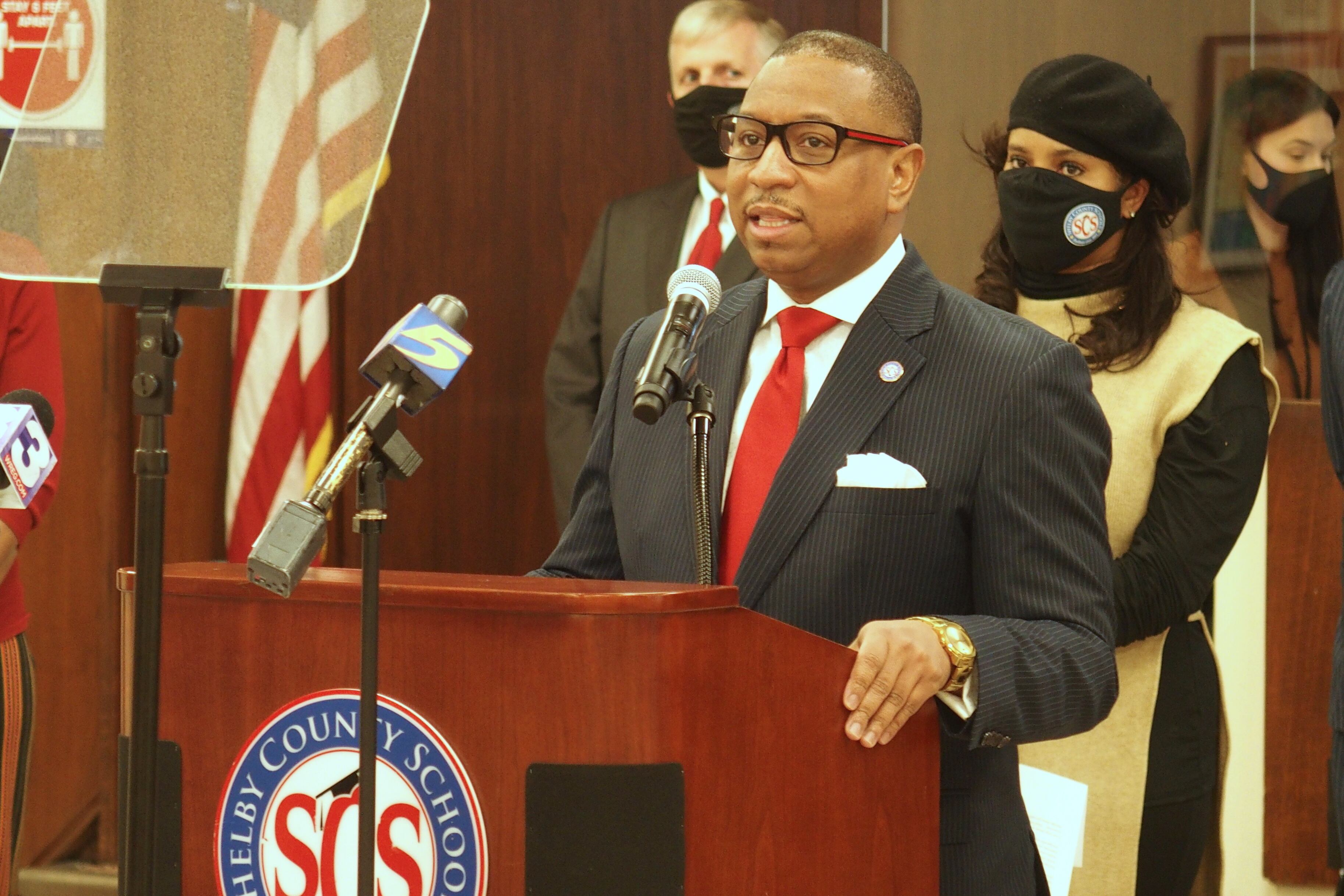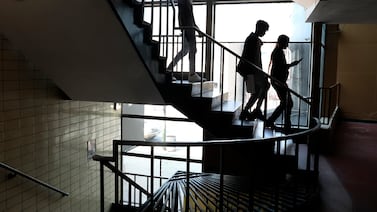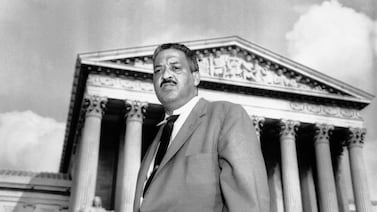Two weeks after Superintendent Joris Ray delayed reopening classrooms indefinitely, he reluctantly announced he will require teachers to return to classrooms Feb. 22 and that students can begin returning to Memphis schools a week later.
Students in kindergarten through fifth grade can return to classrooms first, on March 1, with sixth through 12th graders returning a week later on March 8. Parents can contact their school if they want to change to in-person learning. Parents who choose to continue learning from home can still do that.
Until now, Ray pledged that Memphis teachers would have the option to work from home whenever students return to buildings. Only about 17% of Shelby County Schools teachers chose to return, according to a survey released two months ago. District officials had planned to deploy teacher assistants and central office staff to supervise students expected to return, about one third of them.
But he reversed that stance Friday, saying “we can’t do this work without teachers.”
“We looked at every aspect to try to give teachers choice,” Ray said during a press conference. “But we need teachers to do this work effectively… We want our teachers in front of our students.” To soften the blow, Ray announced Friday that he would offer a $1,000 bonus for certified educators and $500 for other school-based employees who return to buildings.
“We fought the good fight. We stood alone in Memphis and Shelby County against mounting pressure to reopen while COVID-19 cases spiked in our community,” he said. He noted that in a meeting with teachers Friday afternoon, he had reflected on a prayer about accepting what is out of his control.
“We know best how to serve our students and children and as such, the time has come for us to return stronger in-person to our buildings and classrooms,” he said.
Ray cited declining numbers of COVID-19 cases in the county as one of the reasons he plans to reopen classrooms in about two weeks. He also cited a legislative proposal to cut funding for school systems that do not offer at least 70 days of in-person learning this year.
But his desire to have vaccinations available to teachers before announcing a return date went unmet. The state prioritized teachers in its vaccination plan but then bumped them back in the line last month. Shelby County is still vaccinating first-phase medical workers and residents older than 70. In a statement shared by district officials, the county’s health department director said she expects to announce plans to vaccinate teachers “in the near future.”
Federal guidelines released Friday said schools don’t need to wait for staff to be vaccinated to reopen. Instead, the U.S. Centers for Disease Prevention and Control emphasized wearing masks at school, social distancing and COVID-19 testing for students and staff where the virus’ spread is high.
The leader of one of Memphis’ teacher associations spoke at Friday’s press conference in favor of Ray’s plan after months of supporting continuing virtual learning to protect students and staff from COVID-19.

“Pending legislation could cause irreparable harm thus directly impacting teachers and families,” said Danette Stokes, the president of United Education Association of Shelby County. She said she recently toured schools with Ray to hear updated safety rules and brought up concerns from members about returning to classrooms. She said she is “assured that we are ready to re-enter safely.”
“Now, it is critical that we stand behind his decision,” Stokes said. “He has done everything in his power to protect us over the last year. Yet, he is being forced by leaders in Nashville, forcing us to re-enter.”
Ray has avoided most of the tension with teacher unions over reopening classrooms seen elsewhere in the nation.
In Chicago, the district agreed to start a vaccination program and work from home accommodations for teachers as the threat of a strike loomed. In Philadelphia this week, the mayor announced details of a teacher vaccination plan as he and the teachers union waited for a mediator to determine if school buildings were safe, including properly ventilated. The mayor had ordered teachers to return to schools on Monday, but union members protested instead.
Ray gave teachers the option to keep working from home. But, unlike in other states, unions in Tennessee have little power to oppose district actions because the state legislature stripped them of bargaining rights a decade ago.
Jolie Madihalli, the president of the district’s other teacher group, Memphis-Shelby County Education Association, said she was not invited to Ray’s announcement Friday. But in the hours after the press conference, she was inundated with texts and phone calls from teachers who are more at risk of dying from COVID-19 and others who want to be vaccinated but haven’t been given the opportunity to do so.
Madihalli also worried that bringing back all elementary grades at once rather than in smaller phases would be a hard adjustment. Metro Nashville Public Schools, for example, started with students with disabilities in specialty schools and then in students in kindergarten through fourth grade. Madihalli expects numerous teachers to quit or retire following the announcement, especially since Ray had previously promised to give teachers a choice.
“I think this was a tough decision forced upon him by the powers that be in Nashville,” she said, referring to policymakers in the state’s capital. Still, “I think this is going to cause quite a stir if there’s not enough teachers.”
Gov. Bill Lee has pressed Shelby County Schools to offer an in-person learning option, and a spokeswoman praised Ray and school board members Friday for their decision.
“Today’s announcement is encouraging news for parent choice and a return to the classroom is critical for students, especially low-income students who have struggled this year,” said Laine Arnold, adding that the state “will continue to provide support.”
Under Ray’s plan, students will continue learning through videoconferencing through the rest of the school year even if some return to classrooms. Ray said he did not want parents who chose virtual learning to feel like their children were missing out on a better learning experience because they still had concerns about COVID-19.
Shelby County Schools, the state’s largest district with 90,000 students, is the only one in Tennessee that hasn’t reopened school buildings this school year. The district’s charter schools can make their own reopening plans and most of the charter networks are offering in-person learning, though few students are returning.
This story has been updated with comments from Gov. Bill Lee’s spokeswoman and teacher association leaders.








